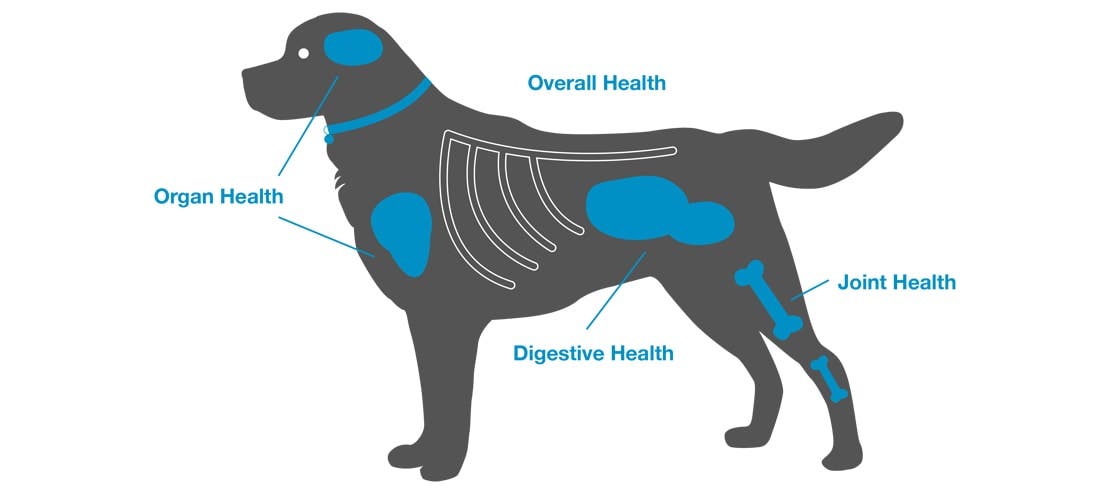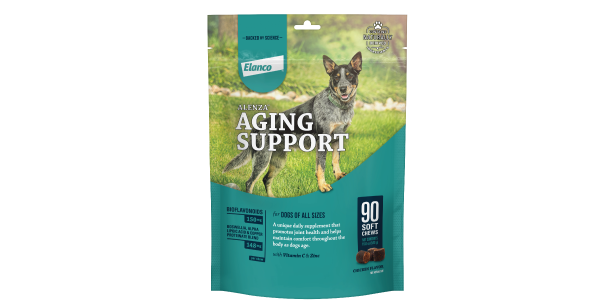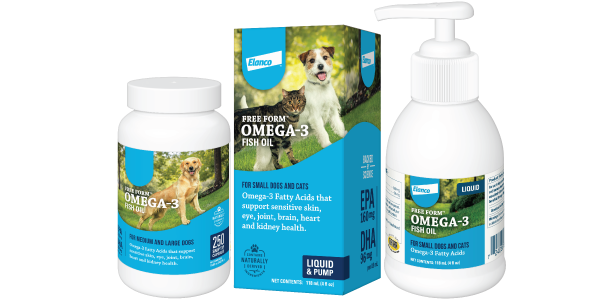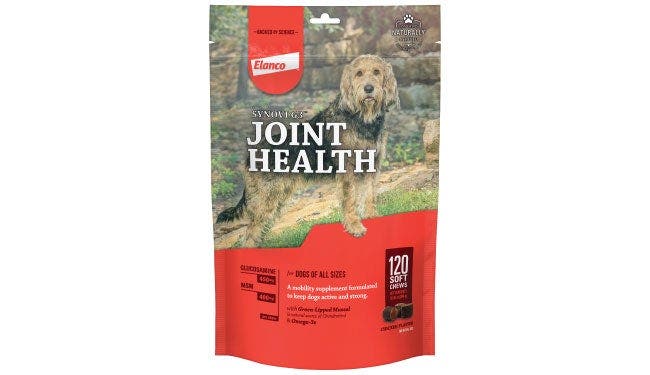Vitamins and supplements for older dogs
While many owners still lovingly refer to their dogs as “puppy” or “baby” at any age, we know each day together is another day that time progresses. As they mature and change, how we care for senior dogs changes, too. You can help support their changing activity, health and nutritional needs with tailored vitamins and supplements for older dogs.
When Is a Dog a Senior Dog?
There’s no preset age that determines when your dog is a senior dog, although many dogs are considered seniors when they reach the last 25% of their projected lifespan. In general, smaller dog breeds live longer than larger dog breeds but genetics, diet and overall care throughout your dog’s life play a role in how your dog ages. How your dog behaves is a larger indicator of their senior status.
Managing Health Concerns with Senior Dog Supplements
Like people, aging dogs have different needs and considerations than their younger counterparts. Along with proper nutrition, exercise and veterinary care, adding supplements may help support the well-being of your dog as he or she ages, including:
- Joint and mobility health
- Gastrointestinal health
- Free radical damage
- Skin and coat issues
- Organ health
- Cognitive health
1. Joint and mobility health
Supplements that include glucosamine, green-lipped mussel, chondroitin and omega-3 fatty acids can support the structure and function of joints in dogs as they age. This includes maintaining healthy cartilage and connective tissue as well helping to relieve occasional joint stiffness and discomfort from daily activity.
2. Gastrointestinal health
Aging dogs can experience sensitive or upset stomachs and may let you know through vomiting, diarrhea or gas. Using probiotic supplements daily or in times of stress (such as separation anxiety) can help maintain a healthy balance of good gut bacteria and support proper digestion and bowel health.
3. Free radical damage
Supplements featuring antioxidants can help reduce the damaging effects of free radicals and their buildup. Free radicals are rogue, reactive molecules that directly damage the body's cells and tissues and are created by everyday environmental stressors, poor diet and/or the aging process. Antioxidants such as vitamins A, C and E plus minerals such as magnesium and zinc help neutralize them.
4. Skin and coat issues
Omega-3 fatty acid supplements may support skin health and help aging dogs address dry skin and problems from skin-related allergies.
5. Organ health
Aging dogs may need assistance maintaining organ health. Supplements that include omega-3 fatty acids and/or vitamins C, D and E can help support their brain, heart, eye, kidney and liver function.
6. Additional Care for Older Dogs
Caring for a senior dog shouldn’t be intimidating. In addition to supplements, regular habits can help support your dog’s quality of life.

- Evaluate nutritional requirements and find a food designed for senior dogs.
- Encourage regular but controlled exercise.
- Maintain mental stimulation through interactions with you, other dogs, toys and their environment.
- Monitor your senior dog’s dental health and breath.
- Consider special accommodations such as orthopedic beds or raised feeding platforms to add comfort.
- Control parasites that might be able to take advantage of an older dog’s weakened immune system.
- Attend regular veterinary checkups for preventive care, disease management and guidance.
We can’t stop time, but we can help our dogs make the most of the time we have together. Continue to monitor your dog’s behaviors and look for signs and symptoms of discomfort, or lack of interest in favorite activities. Consult your veterinarian and develop a plan to continue to support your dog through nutritional supplements, environmental changes and wellness activities.
Choose Quality Products for Your Senior Dog
When it comes to your dog, it’s important to choose products you can trust. Look for the National Animal Supplement (NASC) Quality Seal when selecting supplements for your pet.
Formed in 2001, the NASC monitors animal health supplements through periodic reviews, inspections and product testing. Only companies that meet the standards set forth by NASC can display the NASC Quality Seal on their products.

Alenza® Aging Support
A unique daily supplement that promotes joint health and helps maintain comfort throughout the body as dogs age.

Free Form™ Omega-3 Fish Oil for Dogs & Cats
A supplement for dogs and cats that supports the health of your pet’s skin and coat, joints and immune system with highly concentrated, omega-3 fatty acids. And it comes in two convenient forms so you can choose the one that’s right for your pet, no prescription required.

Synovi G3® Joint Health
A mobility supplement formulated to keep dogs active and strong.





